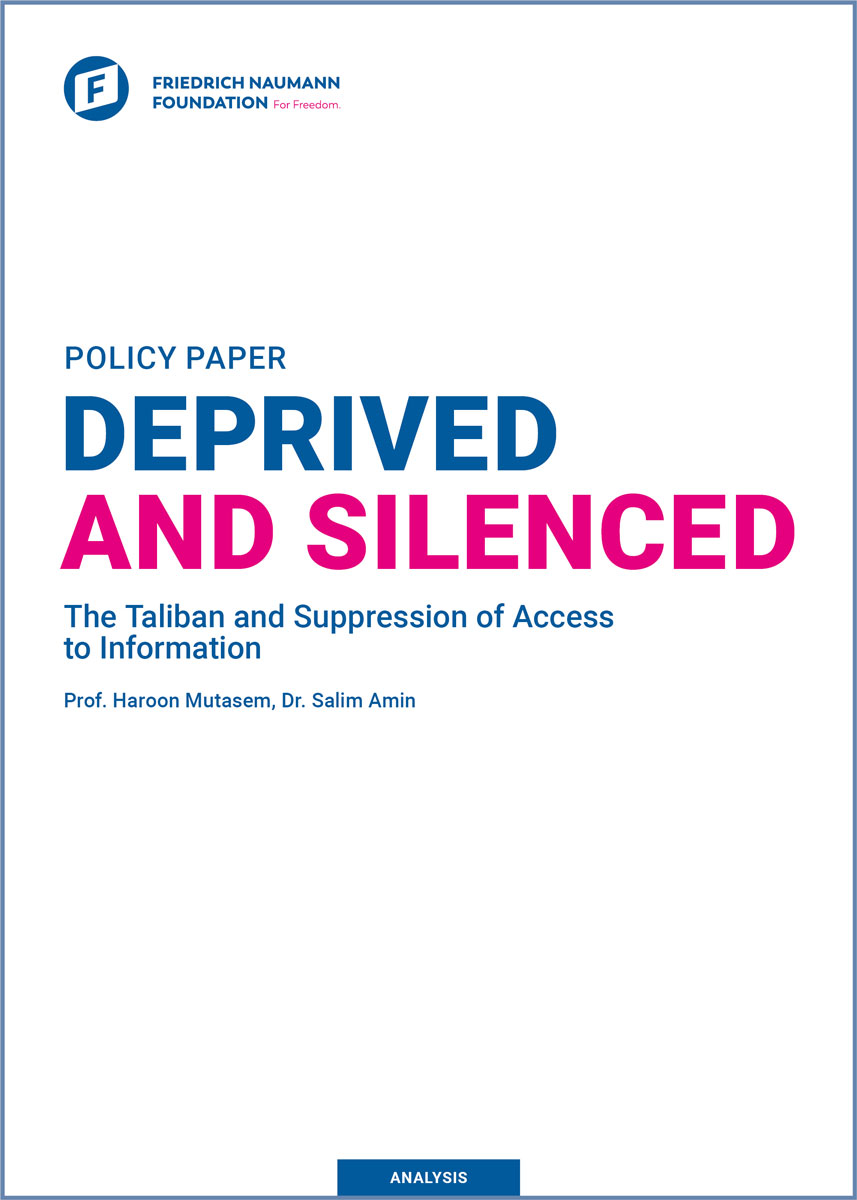Deprived and Silenced
Afghanistan
The Taliban and suppression of access to information
Access to information is vital for a free society and democracy, but the Taliban's return to power in Afghanistan has severely undermined rights. Their control over information has deepened the humanitarian crisis and dismantled previous efforts toward transparency and civic engagement. Before 2021, Afghanistan had made progress with laws promoting information access, but these gains were quickly reversed under the Taliban, silencing voices and stifling free exchange.

This paper, co-authored by Prof. Haroon Mutasem from the American University of Afghanistan and a Research Fellow at the Humboldt University in Berlin, and Dr. Salim Amin, Policy Advisor for Human Rights and International Rule of Law at the FNF, analyses how the Taliban's policies restrict media and information, using censorship, bans on protests and strict controls on journalists to manipulate public perception. These actions violate international legal standards and hinder humanitarian aid. The lack of transparency about the Taliban’s ties to terrorist organizations further endangers global security.
To counter this, the paper recommends that the international community must isolate the Taliban, hold them accountable for human rights violations, and support independent media to document and expose abuses and gross violations of human rights.
Freedom of expression and the media

